Turkish is from a different language family called Ural-Altaic languages. Some languages similar to Turkish are \'Finnish, Hungarian, Estonian, Japanese, Korean, Mongolian, Kazak, Uzbek, Tatar, Manchu\'. Compared to English, the most fundamental differences in Turkish grammar can be listed as:
*
Ordering of sentence parts
o
A typical Turkish sentence is ordered as (subject + object + verb)
+
Arkadaşım [My friend --> subject] araba [car -->object] aldı [bought-->verb].
*
No gender
o
There are no articles in Turkish, and no gender associated with words
o
No gender in personal pronouns (the Turkish word for \'he\', \'she\' and \'it\' is \'o\')
*
Vowel harmony
o
Harmony of vowels is a very fundamental property of Turkish. The rules concerning vowel harmony need to be learned as one of the first steps because they affect the way almost all the other rules are applied.
*
Use of suffixes
o
Suffixes are very widely used in Turkish. The meaning of prepositions, personal pronouns and tenses are all countered by adding suffixes to word roots.
+
Kalbimdesin [You are in my heart]
Three letters of the English alphabet are missing in the Turkish alphabet.
1. (Q-q)
2. (W-w)
3. (X-x)
There are seven additional characters not found in the English alphabet.
1. (Ç-ç)
2. (Ğ-ğ)
3. (I-ı)
4. (İ-i)
5. (Ö-ö)
6. (Ş-ş)
7. (Ü-ü)
Letter Pronunciation
A, a
like the a in car
B, b like the b in bet
C, c like the g in gender
Ç, ç like the ch in chance
D, d like the d in debt
E, e like the e in less
F, f like the f in felony
G, g like the g in game
Ğ, ğ this is a very weak sound, not pronouncing at all will be ok
H, h like the h in hello
I, ı like the e in halted
İ, i like the ee in keen
J, j like the ge in garage
K, k
like the k in kelly
L, l like the l in lamb
M, m like the m in man
N, n like the n in neighbor
O, o like the a in ball
Ö, ö like the u in urge
P, p like the p in pen
R, r like the r in rent
S, s
like the s in send
Ş, ş like the sh in shed
T, t like the t in tennis
U, u like the oo in good
Ü, ü like the u in nude
V, v like the v in vent
Y, y like the y in yes
Z, z like the z in zen
++++
i ben i am adjective ben adjective-im
you sen you are adjective sen adjective-sin
he
she
it
o he \
she | is adjective
it /
o adjective
we biz we are adjective biz adjective-iz
you siz you are adjective siz adjective-siniz
they onlar they are adjective onlar adjective-ler
güzel --> beautiful
I am beautiful. --> Ben güzel-im. --> Güzelim. (Personal pronoun is implied)
You are beautiful. --> Sen güzel-sin. --> Güzelsin.
He/she/it is beautiful. --> O güzel. --> Güzel.
We are beautiful. --> Biz güzel-iz. --> Güzeliz.
You are beautiful. --> Siz güzel-siniz. --> Güzelsiniz.
They are beautiful. --> Onlar güzel-ler. --> Güzeller.
kötü --> bad
I am bad. --> Ben kötü-y-üm. --> Kötüyüm. (Note how kötü and -üm are connected with the fusion consonant 'y'.)
You are bad. --> Sen kötü-sün. --> Kötüsün.
He/she/it is bad. --> O kötü. --> Kötü.
We are bad. --> Biz kötü-y-üz. --> Kötüyüz.
You are bad. --> Siz kötü-siniz. --> Kötüsünüz.
They are bad. --> Onlar kötü-ler. --> Kötüler.
geliyor --> coming (present continuous tense)
I am coming. --> Ben geliyor-um. --> Geliyorum.
You are coming. --> Sen geliyor-sun. --> Geliyorsun.
He/she/it is coming. --> O geliyor. --> Geliyor.
We are coming. --> Biz geliyor-uz. --> Geliyoruz.
You are coming. --> Siz geliyor-sunuz. --> Geliyorsunuz.
They are coming. --> Onlar geliyor-lar. --> Geliyorlar.
For nouns other than these pronouns, you must use the third person case.
Marzena is beautiful. --> Marzena güzel.
Marzena is very beautiful. --> Marzena çok güzel.
Joe is bad. --> Joe kötü.
Joe is coming. --> Joe geliyor.
Demonstrative pronouns
These are the pronouns used for obects instead of people.
this bu
that (between this and that) şu
that o
these bunlar
those (between these and those) şunlar
those onlar
kitap --> book
Bu bir kitap. --> This is a book.
Şu bir kitap. --> That is a book.
O bir kitap. --> That is a book.
Bunlar kitaplar. --> These are books.
Şunlar kitaplar. --> Those are books.
Onlar kitaplar. --> Those are books.
Possessive Pronouns
Personal posessive pronouns:
my ben-im my noun ben-im noun-im
your sen-in your noun sen-in noun-in
his
her
its
o-n-un his \
her | noun
its /
o-n-un noun-i
our biz-im our noun biz-im noun-imiz
your siz-in your noun siz-in noun-iniz
their onlar-ın their noun onlar-ın noun-leri
Notice his/her/its is o-n-un instead of o-un. Since two vowels don't come together in Turkish, one fusion consonant is added in between. It is 'n' in this case. Either a fusion consonant is added in between, or one of the vowels is dropped whenever a vowel is followed by another vowel.
ev --> house
my house --> ben-im ev-im --> evim (personal pronoun is implied)
your house --> sen-in ev-in --> evin
his/her/its house --> o-n-in ev-i --> onun evi --> evi
our house --> biz-im ev-imiz --> evimiz
your house --> siz-in ev-iniz --> eviniz
their house --> onlar-ın ev-leri --> evleri
araba --> car
my car --> ben-im araba-m --> arabam (the suffix -im becomes -m when added after a vowel, since two vowels don't come together in Turkish)
your car --> sen-in araba-n --> araban
his/her/its car --> o-n-in araba-s-ı --> onun arabası --> arabası (Instead of dropping one vowel, here the fusion consonant 's' is added between vowels since the suffix is only a single vowel.)
our car --> biz-im araba-mız --> arabamız
your car --> siz-in araba-nız --> arabanız
their car --> onlar-ın araba-ları --> arabaları
For nouns other than these pronouns, always the third person form is used.
Gizem's house --> Gizem'in evi
Gizem's car --> Gizem'in arabası
My mother's house --> Annemin evi
Demonstartive posessive pronouns:
of this bu-n-un
of that (between this and that) şu-n-un
of that o-n-un
of these bunlar-ın
of those (between these and those) şunlar-ın
of those onlar-ın
Bunun evi --> The house of this
Şunun evi --> The house of that
Onun evi --> The house of that
Bunların evleri --> The house of these.
Şunların evleri --> The house of those.
Onların evleri --> The house of those.
++++
For nouns other than these pronouns, always the third person form is used.
The room of the house --> Evin odası
Cat's food --> Kedinin yemeği
Reflexive Pronouns
The way reflexive pronouns are constructed in Turkish is very similar to the way we do it in English. The Turkish word for self is kendi. The reflexive pronouns hence are as follows:
myself kendi-im kendim
yourself kendi-in kendin
himself
herself
itself
kendi-si kendisi
ourselves kendi-imiz kendimiz
yourselves kendi-iniz kendiniz
themselves kendi-leri kendileri
+++
:
*
Personal pronouns (ben, sen, o, biz, siz, onlar)
*
Demonstrative pronouns (bu, şu, o, bunlar, şunlar, onlar)
*
Possessive pronouns
o
Personal possessive pronouns (benim, senin, onun, bizim, sizin, onların)
o
Demonstrative possessive pronouns (bunun, şunun, onun, bunların, şunların, onların)
*
Reflexive pronouns (kendim, kendin, kendisi, kendimiz, kendiniz, kendileri)
There are also other pronouns used for many different situations, like everybody, nothing... Let's now see the Turkish meanings for these pronouns.
English Turkish
Basic components of these pronouns
every her
thing şey
none hiç
any herhangibir
one, a bir
some bazı
all bütün
Pronouns
everything herşey
something birşey (singular)
birşeyler (plural)
nothing hiçbir şey
anything herhangibir şey
everybody herkes
somebody birisi (singular)
birileri (plural)
nobody hiç kimse
anybody herhangi birisi
all of these (bunların) hepsi
all of those (onların) hepsi
all of us hepimiz
all of you hepiniz
none of these (bunların) hiçbiri
none of those (onların) hiçbiri
none of us hiçbirimiz
none of you hiçbiriniz
some of these (bunların) bazıları
some of those (onların) bazıları
some of us bazılarımız
some of you bazılarınız
In English, some of these pronouns that have negative meanings are used in positive sentences. For example,
There is nobody here. (Instead of there isn't nobody here)
In Turkish, you never do this. If the meaning of a pronoun is negative, it must always be used in a negative sentence. Similarly, pronouns with positive meanings must always be used in positive sentences.
There is nobody here. --> Burada hiçkimse yok.
Now, let's use some of these pronouns in sentences:
Every flower does not smell. --> Her çiçek kokmaz.
What is this thing? --> Bu şey ne?
There is none left. --> Hiç kalmadı.
Some students are here. --> Bazı öğrenciler burada.
All students are here. --> Bütün öğrenciler burada.
Everything's ok. --> Herşey yolunda.
Everything is here. --> Herşey burada.
Ask something. --> Birşey sor.
I saw nothing. --> Hiçbir şey görmedim.
Is there anything? --> Herhangibir şey var mı?
Is everybody here? --> Herkes burada mı?
Somebody came. --> Birisi geldi.
Nobody came. --> Hiç kimse gelmedi.
Anybody can come. --> Herhangi birisi gelebilir.
All of these are mine. --> Bunların hepsi benim.








 le garçon qui a le don d'invisibilité, · Ombre parmi les ombres des nocturnes torrides,
le garçon qui a le don d'invisibilité, · Ombre parmi les ombres des nocturnes torrides,

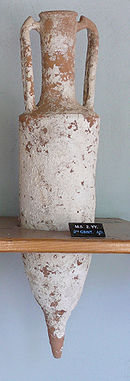

 Machtesh Ramon
Machtesh Ramon -MASADA ISRAEL-
-MASADA ISRAEL-
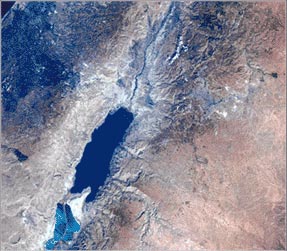



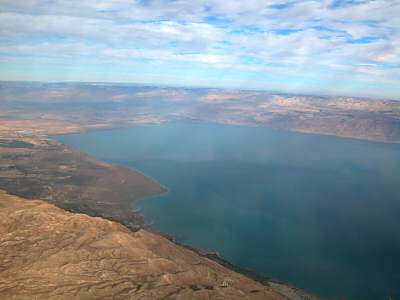


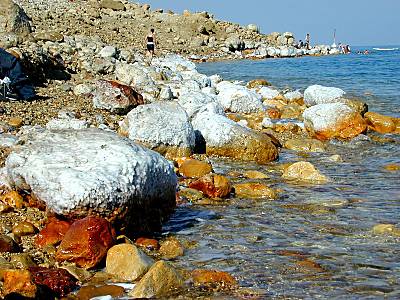
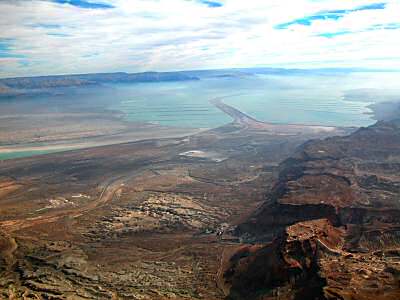

![Reblog this post [with Zemanta]](http://img.zemanta.com/reblog_e.png?x-id=4ae1821c-4672-4350-a214-7ab26a688f6c)






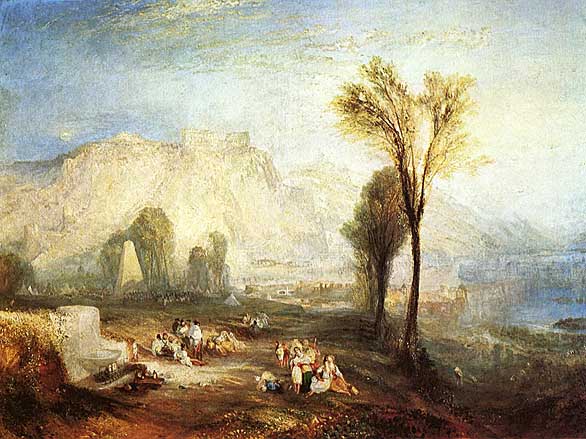

![Reblog this post [with Zemanta]](http://img.zemanta.com/reblog_e.png?x-id=10595007-bc11-8760-93ec-da21df4899de)





![Reblog this post [with Zemanta]](http://img.zemanta.com/reblog_e.png?x-id=1e96cddb-154a-8642-ab84-01a454e25c7b)


